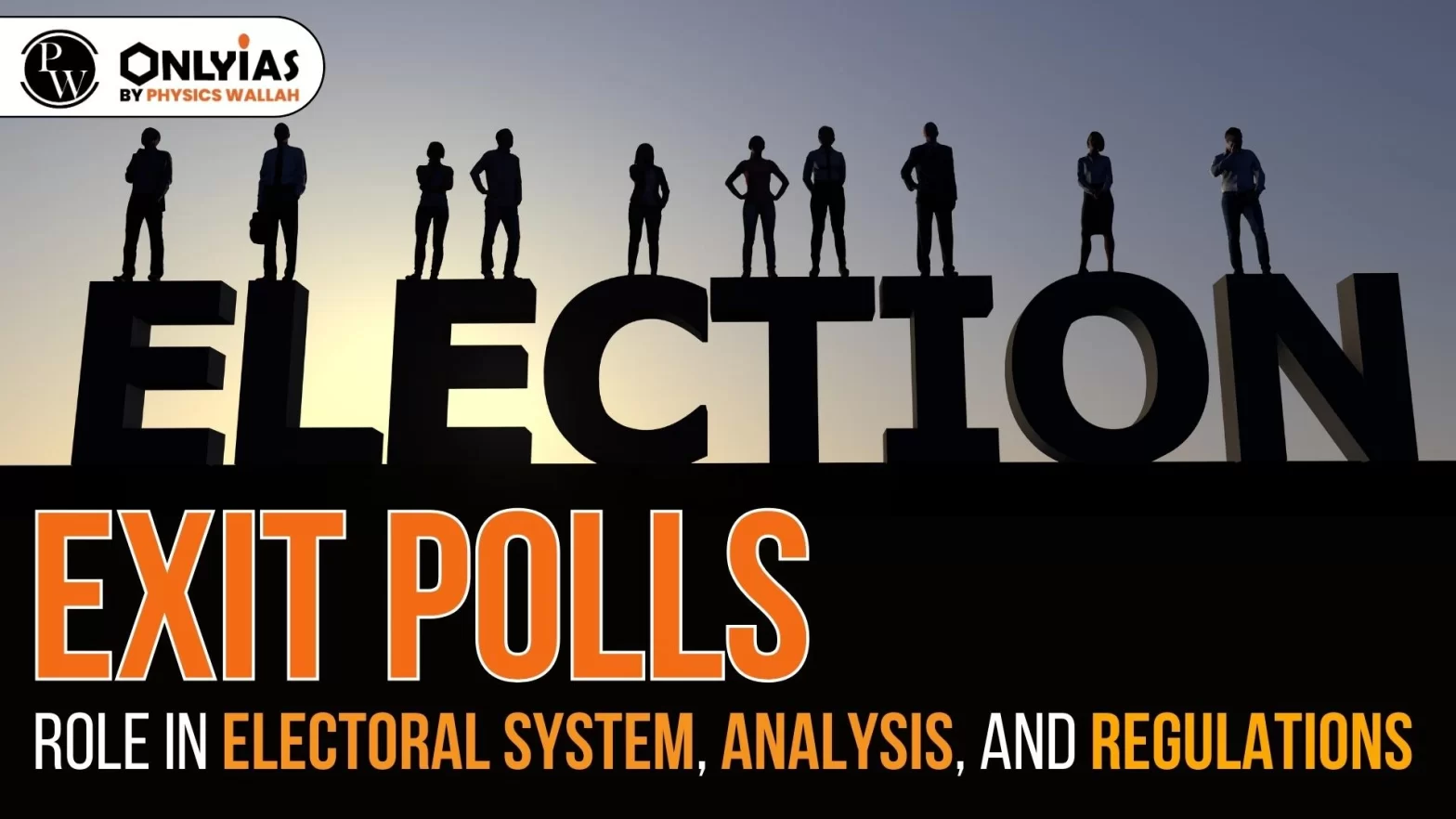Context: Results of the exit poll conducted by different media organisations in all the five poll-bound states will be out only after voting in Telangana ends - at 6 pm on November 30.

| Nature of Data Collected | Method |
|
|
Opinion Polls
|
|---|
| Country | Regulations |
| France |
|
| European Union |
|
| United Kingdom |
|
| United States |
|
| Germany |
|
| Bulgaria |
|
| Singapore |
|
| Must Read | |
| NCERT Notes For UPSC | UPSC Daily Current Affairs |
| UPSC Blogs | UPSC Daily Editorials |
| Daily Current Affairs Quiz | Daily Main Answer Writing |
| UPSC Mains Previous Year Papers | UPSC Test Series 2024 |
Exit Polls are the opinion taken from the voters immediately after they have exited the polling stations.
During the second Lok Sabha elections in 1957, the Indian Institute of Public Opinion had conducted such a poll. It can be considered the first such exercise.
Exit polls are used to collect demographic data about voters and their voting pattern. Exit poll is also used as a rough indicator to identify election fraud.
Countries such as Germany, Singapore, UK, India, EU etc have imposed restrictions on exit polls.
The difference between exit polls and opinion polls is that opinion polls capture pre-voting sentiments whereas exit polls capture post-voting sentiments.
Model Code of Conduct is a set of guidelines that Election Commission (EC) of India issues for candidates and political parties during elections.
<div class="new-fform">
</div>